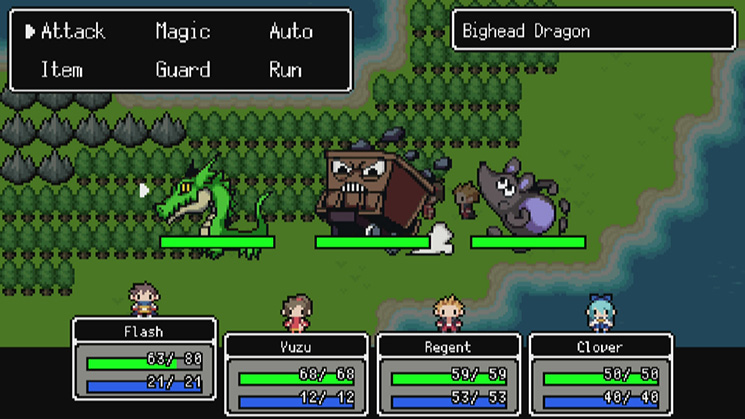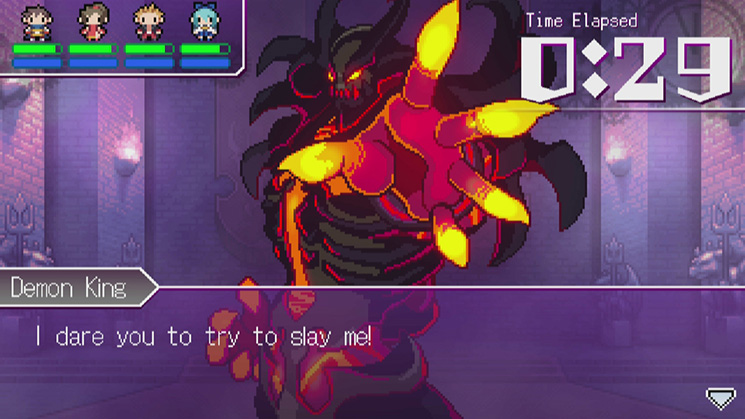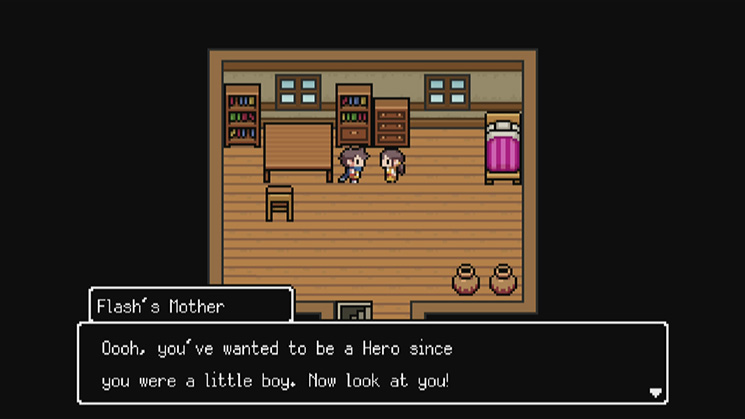[Review] The Longest Five Minutes – Nintendo Switch

The Longest Five Minutes
Nintendo Switch
Developer: NIS America
Publisher: NIS America
Category: Role-Playing
Release Date: 02.13.2018
The Longest Five Minutes for Nintendo Switch is a light turn based jrpg that takes the traditional classic formula of the genre and turns it upside down. Instead of starting at the beginning of our hero’s journey, we are instead thrown directly into the final boss fight, where our hero, Flash Back, has come down with instant onset amnesia. When he expresses his bewilderment to the other party members, they are flabbergasted by this revelation, and then proceed to prompt him about their journey and its purpose. From this point, we start to play through snippets of the path already traveled in an attempt to bring our hero up to speed and restore his memories and confidence in order to take down the Demon King. The Demon King, by the way, is privy to this absurd occurrence that takes place in his presence, and comments as such.
Each party member has their own name and backstory, but it’s much more interesting if you discover these on your own, and they’re honestly not all that important.
At its core, The Longest Five Minutes is a rehashing of familiar turn based RPG mechanics and tropes. Other than the narrative structure, and the ability to replay through any given memory after its completion, doesn’t do anything particularly new, or memorable. However, this actually works in the game’s favor, as it tends to emphasize its own self-awareness of being a simplified, almost parody of this well- tread genre.

Everything about the game is exactly what you could have expected about a classic RPG that followed the fundamentals of the genre as laid out by the original Dragon Quest games. Gone are scenes of lengthy exposition, epic cutscenes, and an emphasis on deep character and/or weapon customization. There are no crafting elements, and no complex skill trees to be found. Just an amnesiac protagonist, his ragtag party of childhood friends that balance each other out, and a whole heck of a lot of callbacks.
Combat is turn based, and doesn’t really offer too much in the way of depth or strategy. There is even an auto battle feature that allows you to let the game do the work for you. Boss fights revolve primarily around bashing them while capitalizing on their elemental weakness, if any, and little else. Most of the game’s lore is told through conversing with the NPCs, and weapons and items don’t carry over from one memory to the next.
There is little reason to grind levels or cash, but what “reexperience” you do earn carries over to subsequent memories. Even the memories themselves play out in a non-linear order, only happening when triggered during the final boss fight. Which memory and where at in the quest you happen to remember are all hinged on how they memory relates to the current topic of discussion. As you relive these memories, a little more time accumulates on a timer in the top hand corner of the screen.

Even healing has been simplified, as you can use a two button combination at any time to heal your party, which auto- deducts MP from whichever character has the most until it’s gone.
The Longest Five Minutes simultaneously plays out like an introduction to the series, and a nostalgia- fueled trip down memory lane for seasoned veterans. This streamlined approach may turn some of the more hardcore adherents of the genre off from the game, but I personally found it refreshing to let the game take the wheel as far as character growth and narrative progression are concerned.
The game’s minimalist style also translates over to the runtime, which comes in at about 10 hours if you don’t replay any missions.
The Longest Five Minutes looks much like a 16 bit era RPG should, except with a bit more polish in the enemy sprites during combat. The music is sufficient, but there aren’t too many memorable tracks, and it sounds like generic music pulled from an RPG Maker included library.

Speaking of RPG Maker, the Longest Five Minutes feels very much like a game made using the software. Fortunately, it is most representative of those games made by experienced users with a sense of humor.
The Longest Five Minutes is a charming take on a familiar formula, and could easily take the place of Final Fantasy Mystic Quest as this generation’s version of capturing a new audience. I had a lot of fun with it, and I believe that it would be the same for those that are into the genre.












